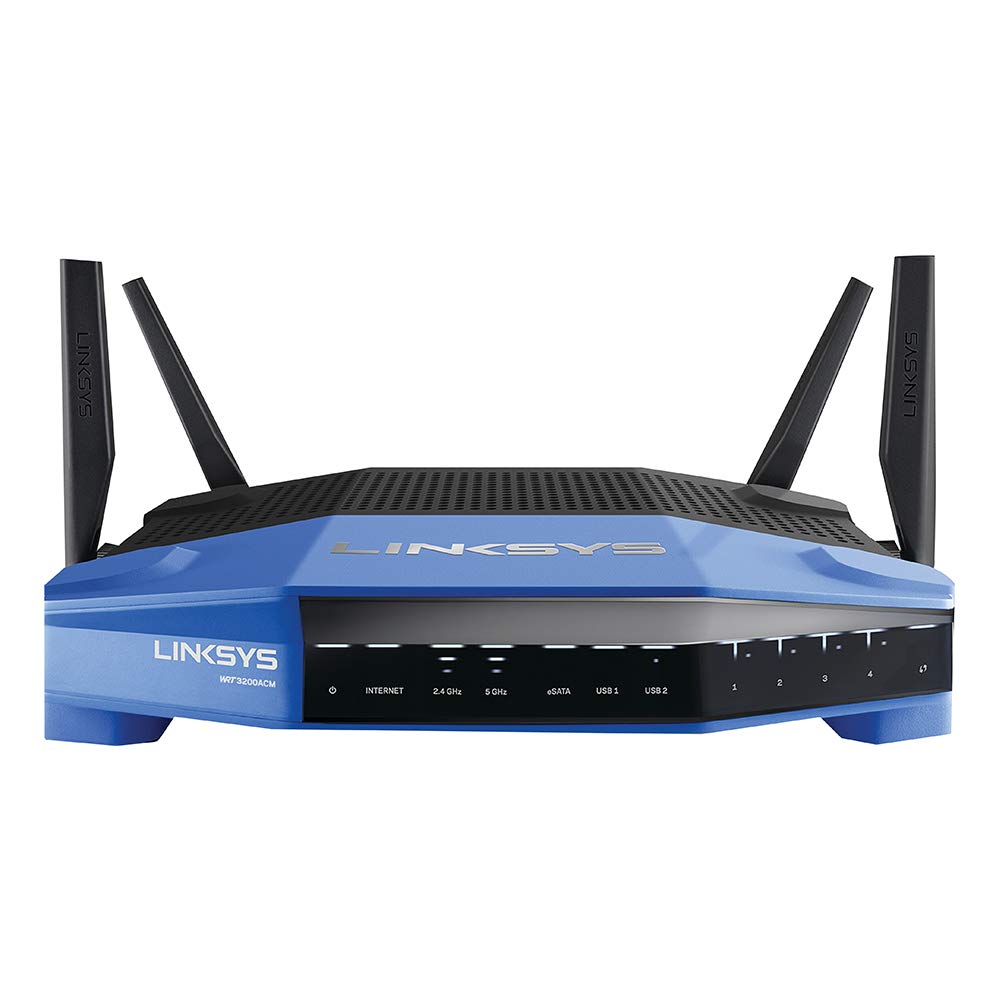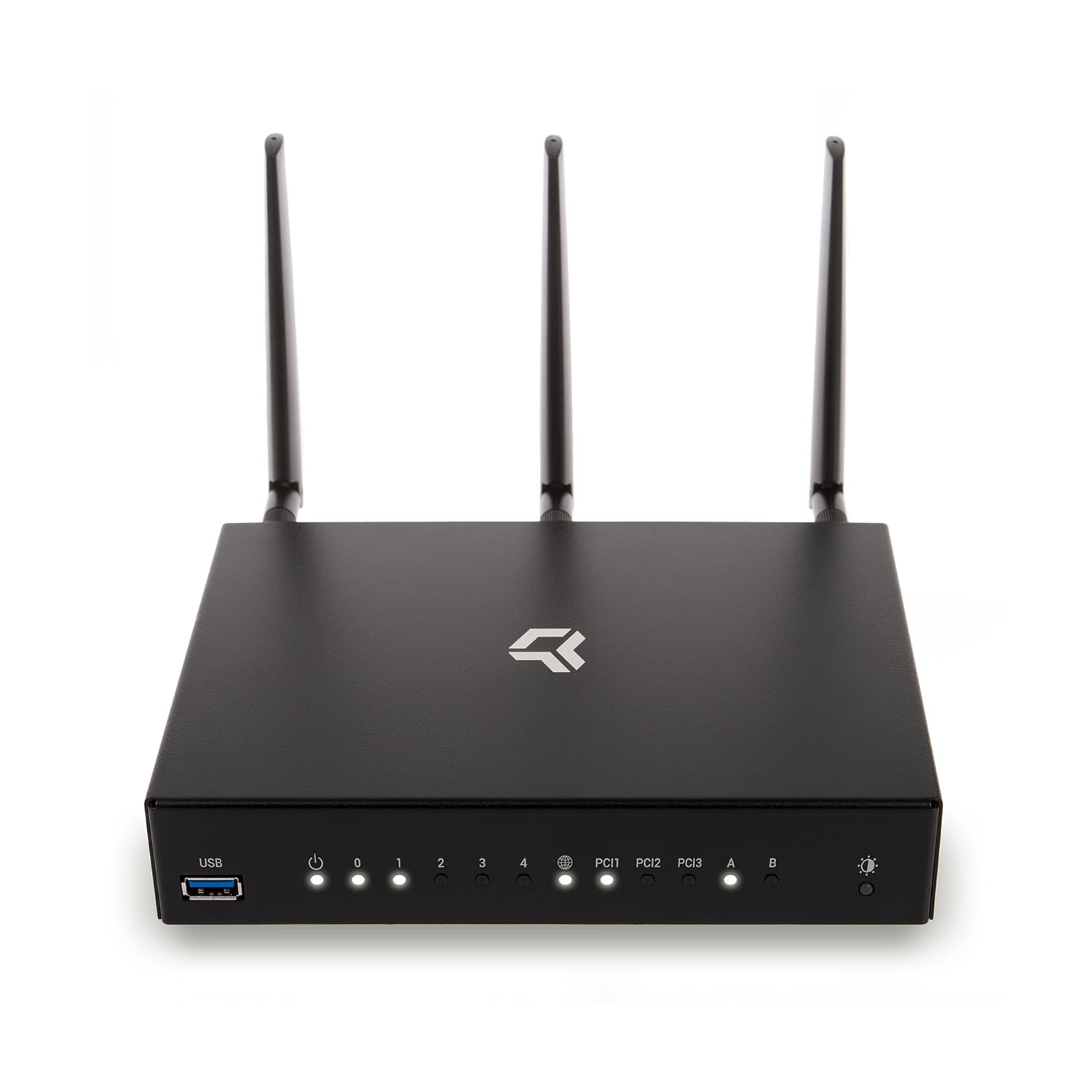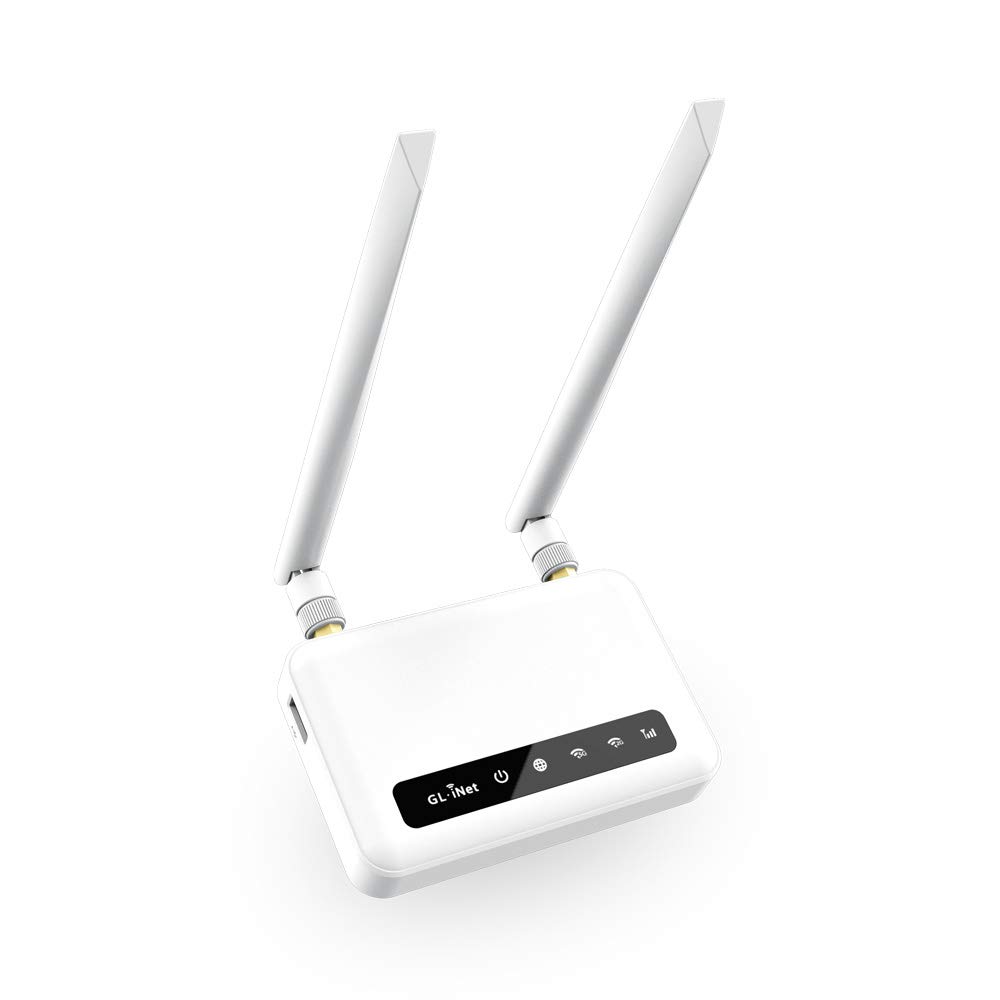Let us face it; in this modern world, you cannot really make do without the Internet. While Wi-Fi routers have seen some drastic changes in the last few years, we, as Internet users, have also grown more tech-literate. As we continuously look for fast, reliable Wi-Fi performance that can make our work much more comfortable, routers of this day can provide much more than that. OpenWrt Router is an excellent example of such an advancement that opens the world to many possibilities. We understand the hunger for getting the best, and therefore, to cater to your tech-buds, here is our take on the Best routers for OpenWrt.
OpenWrt is a firmware for routers that transform the traditional routers into a high-performance device by providing better Internet speed, reliability, storage, and safety. We cannot deny that our activities online are tracked continuously, and at times this can be a threat, which is a constant concern for us. OpenWrt keeps our online activities private and, therefore, safe. As we always keep moving from place to place and need to get our work done all the time conveniently, wireless OpenWrt routers might be very handy.
Table of Contents
Best Router for OpenWRT Reviews
1.Slate GL.iNet GL-AR750S

The most striking feature of this particular OpenWrt router by GL.iNet, one of the leading router manufacturers, is its compact and lightweight design. At only 86g, this router makes it to the top list of travel routers. This 775MHZ CPU powered dual Broadband AC router lets you juggle between 2.4GHz and 5GHz, helping to avoid traffic and provide high Internet speed for better performance.
The router has 128MB RAM, 16MB NOR Flash, and 128MB NAND Flash. However, there is also a micro SD card slot that lets you extend storage by as high as 128GB. Slate has three-gigabit ports at the back, one WAN and the other two LAN, one of the few travel routers with Gigabit. This handy router also has OpenVPN and WineGuard pre-installed along with OpenWrt, which helps encrypt data and protect online activities and aids in connecting workplaces through a secure private cloud. The pre-configured cloudware DNS software further tightens online security by preventing eavesdropping.
- Dual-Band provides high speed even in noisy Wi-Fi environments like hotels, cafés, etc.
- It can be used as a Repeater, mini Router, and Access Point from only one login.
- Suitable for streaming UHD videos, playing games simultaneously on multiple devices
- Dual-Band helps in avoiding traffic and provide the best Wi-Fi performance.
- Can go for long hours without charging; evidently useful while traveling
- WPA cannot be disabled to use WPA2-AES only
- The speed of USB 2.0 could below in case of copying huge files.
2. Linksys WRT AC3200

The AC3200 router from Linksys uses the MU-MIMO and Tri-Stream 160 technology that provides incredible Internet speed to multiple devices. With its OpenWrt firmware, you can customize your router the way you want by setting up different advanced features. The Linksys Smart Wi-Fi App allows you to customize your router and manage your Wi-Fi from mobile devices, making the process as easy as a piece of cake!
AC3200 uses a powerful dual-core processor of 1.8 GHz capable of handling heavy traffic to enjoy a fast and responsive network without f buffering. The router has a USB 3.0 Port, 4 Gigabit Ethernet port, and an eSATA/USB 2.0 hybrid port, making it very convenient to transfer files and data in no time.
- Can run as many as 15 devices at the same time
- The Linksys Smart Wi-Fi website gives all the information related to network usage and provides access to endless features.
- Provides adequate wireless signal
- It offers the opportunity to enable a temporary guest network so that you can ensure more signals to few devices more than the others.
- Speed might face issues at times.
3. Zyxel Armor Z2

Zyxel had been in business for almost 30 years, catering to customer demand for high-performance routers. Armor Z2 from Zyxel is one of the best wireless routers for people who want very high and consistent Networks across many devices. The Armor Z2 also uses the 4*4 MU-MIMO technology, which provides breakneck Internet speed, almost three times the standard routers. It is also equipped with the second generation AC2600 802.11AC chipset that delivers 2600 Mbps speed, effortlessly covering an area of 2500 Square Feet. Not only that, the intelligent beamforming technology in the antennas of the router helps maximize speed and connectivity.
Armor Z2 runs on a potent dual-core 1.7 GHz CPU. It is backed with Dual-Band StreamBoost technology, making it the best choice for Ultra HD video streaming and Online Gaming without any interruption.
The router also has 4GB of eMMC Flash Storage and 0.5GB RAM, and its unique thermally enhanced design lets air cool down, which is essential for smooth running. Undoubtedly, This router is the best cheap OpwnWrt Router that you can get on the market.
- Capable of delivering up to 20-25% more speed than promised
- It quickly covers as big an area as 4000 square feet.
- The StreamBoost and MU-MIMO provide high-speed network without buffering even if streaming High Definition Videos (Like Netflix) and gaming side-by-side.
- The router can perform complex shaping, filtration, routing, and NAT, easy for small offices.
- There are two USB ports (USB 3.0 and USB 2.0)
- The interface is a little slow, even in expert mode.
4. Turris Omnia Open Source Wi-Fi Router

Omnia from Turris quickly makes it to the list of the best Routers for OpenWrt. This router is a Dual-Band router that uses the 3*3 MIMO technology, ensuring very high speed. The router has a RAM of 2 GB and FLASH of 8GB, so it is very evident that this is great for quick and secure data storage and transfer. It also is operated by a high power dual-core ARM CPU of 1.6 GHz, which delivers very fast, reliable PC like performance.
There are two USB 3.0 ports, one GWAN, five GLAN, one SFP, three Mini PCI Express, one mSATA, and one SIM card slot, making data transfer very convenient. The router additionally installs new software versions automatically, which only adds to the improvement of security.
- The router receives automatic security updates.
- It entails a straightforward user interface, so along with the computer geeks, anyone with limited computer knowledge can use it easily.
- There is an SFP port for using an optical network.
- Has solid metal outer surface
- The router is expandable through several interfaces.
- Does not recognize all LTE Chips
- The router might not be able to support older devices dates back to 2009 and before that.
5. iNET Spitz OpenWrt Router

This Smart, lightweight Router by GL.iNET is another device that can be used while traveling, and its unique features quickly make it one of the best OpenWrt Routers. Running on a powerful QCA9531 CPU of 650MHz can transfer 4G LTE signal to Wi-Fi to deliver very high Internet Speed. It has 128MB RAM, 16MB NOR FLASH, and its MicroSD Slot allows you to extend this storage by up to 128GB to create local drives and share them easily across devices. The router also has two Ethernet ports, one micro SIM slot, and a USB 2.0 port.
Spitz has pre-installed OpenVPN and WIneguard, ensuring activities are kept private and safe. You can also choose from more than 25 VPN service providers. It uses Cloudflare DNS, which further improves security. The router possesses a built-in mini PCIe 3G/4G module that favors different operators all around the globe.
- Hardware performance is great.
- Provides the best value for money
- High speed, even without antennae, is suitable for VOIP calls, streaming, gaming, etc.
- Configures itself from SIM cards.
- It provides a little less range than other similar routers.
6. VIXMINI Traveler Router

With the most compact size, you can get in a router, at only 26.3g, the VIXMINI makes the most suitable travel buddy any day. You can slip it into your pocket and avoid connecting with the not-so-secure public Wi-Fi networks: a powerful CPU, MTK7628NN of 580MHz, powers the router to deliver Internet Speed as high as 300Mbps. As for memory, VIXMINI has a 64MB DDR2 and 8MB FLASH.
This router has three different modes – Repeater, Extender, and Access Point Modes. You can use laptops, power banks, and adapters to power the router, making it suitable for outside homes and in crowded places. Not only is OpenWrt pre-installed, but there is also more than 4000 software to choose from. There is one Ethernet Port for WAN and LAN and one Hotel Ethernet port too.
- Supports both WPA and WPA2 protocols
- Supports WEP encryption, ensuring higher security
- Capable of transferring large files and streaming media without buffering or speed slowdown
- Provides high and reliable speed at a lower price than other routers
- It provides a sufficient network that can penetrate through rock and metal.
- It does not come with a power plug.
7. GL.iNET MUDI 4G OpenWrt Router

This one from GL.iNET is for people who absolutely prioritize Internet safety. You are most vulnerable to malicious threats while traveling. MUDI was awarded the CES award to ensure the highest cybersecurity from hacking, viruses, and data leaks by providing the best cryptography. Its compact size and 285g weight can be taken as one of the best wireless routers for traveling. You can go as long as 8 hours with a fully charged router. Its 4G LTE feature delivers a combined speed of 300Mbps (2.4G) and 433Mbps (5G). It has a huge storage, just like the other routers in the GL.iNET series.
MUDI has the TOR (The Onion Router) service installed, which can help encrypt and bounce communications randomly through a network of relays run by volunteers worldwide. A single switch can switch on and off the TOR, and this, along with the pre-installed OpenVPN and Winegard, makes the router safe against hacking, viruses, and data leaks. MUDI supports more than 25 commercial VPN providers, so you can choose what you want.
- No OpenWRT Interface
- Provides additional configuration path through Luci or SSH
- Self powers when attached to a charger.
- Has software option to hide SSID and Password information on the display
- LED display helps in checking the status of things without having to log in to the web interface.
- Is it a little expensive compared to other similar routers?
- It can get a little heated up.
8. iNET ARM3000M Mini Travel Router

This mini travel router is very similar to MUDI, except it is more suitable for working professionals and people into DIYs and like to experiment with different software. The high storage of 128MB RAM and 128MB NAND Flash is also backed by 1 GPIOs for hardware DIY. Since Public networks hardly provide any security, this router can convert the public network, phone tethering, and even 3G/4G modems into a safe Private Wi-Fi.
It has pre-installed OpenWRT, OpenVPN, compatible with more than 25 VPN clients. You can also get access to more than 4000 software packages that let you customize your network experience as per your needs.
- Firmware is auto-updated on the device.
- The router provides a fantastic range.
- It is very flexible and fully featured.
- Has both WAN and LAN ports so that both can be used at a tIMe
- Backed by the DD-WRT that manages the features of the router and makes a lot of add-ons possible
- There is no slot for SD Card.
- It only has 2.4Ghz.
Factors to consider while buying a Router for OpenWRT
It is already very evident that OpenWRT routers are better than the traditional ones in many different ways. Of course, your life is made much more comfortable and fancier, but here is the catch. Buying the router most compatible with your set of needs is essential. If you are willing to spend so much money on ensuring your security, you should also make sure it is the best one for you. Here are certain things you should consider before buying your OpenWRT router.
RAM
You really want to look into the RAM because for the router to operate smoothly with all the software, the RAM must be sufficient. Most routers support RAM up to 512 MB. OpenWRT routers also use Flash memory for persistent storage of the firmware and its configuration. There are different types of Flash memory, and OpenWRT routers differentiate between NOR and NAND Flash. While NOR flash is typically smaller in size (4MiB to 16 MiB), NAND Flash usually is large (32 MiB to 256 MiB). If your router allows, you can also insert additional memories, but too much might be a bottleneck in its operation.
Hardware
Then there is the hardware. There is already a list of compatible hardware on OpenWRT’s official website, but you need to keep some knowledge. OpenWrt typically targets traditional routers, which run on ARM or MIPS CPUs. However, running inside a VM or on common x86 Hardware is also possible. While most consumer Hardware can lack Ethernet ports, Hardware for IPC (Industrial PC) or server mainboards are built and advertised 24/7. Other embedded devices or SBC may be viable alternatives.
LAN
LAN might be one more thing to consider. Most NICs (Network Interface Controller) that helps connect devices to the router might incorporate one or two (and rarely more than that) System on a Chip. These are implemented as Soc-integrated Ethernet-MAC –blocks.
BootLoader
Another thing to consider is the BootLoader, a piece of software that is executed every time the hardware is powered up. Bootloaders are handy for OpenWRT since it helps users to debrick the router.
USP ports
You might also be interested in the ports used to transfer files. Routers may or may not come with USB ports. There are also serial ports, JTAg ports, TAE Sockets, etc., all designed to make work easier for you.
Software backups
Then there are the obvious, the software backups for extra security, the supported/compatible VPN clients, cryptography, period of time it can go with full charging, etc.
Frequently Asked Questions
What is OpenWrt router?
In easy words, Openwrt is open-source, advanced software for routers, or other embedded devices that help in upgrading the performance of routers by adding more features, increasing speed, and at the same time providing higher security. It is typically used for wireless routers. If you install OpenWRT in your routers, you can expect to have brought performance and stability, fewer lags. At the same time, surfing, gaming, and other activities, and higher security.
Is my home router compatible with OpenWRT?
OpenWRT is generally installed in wireless home WI-Fi routers. A very long list of compatible devices is available on OpenWRT’s website (https://openwrt.org/supported_devices). However, the gist is to run OpenWRT on any device; it is recommended that the device has a minimum of 16MB Flash and 64MB RAM or even higher amounts. So, if your home routers meet these criteria, well, yes, your router is compatible with OpenWRT.
How to configure the OpenWRT router?
Configuring OpenWRT routers are not as robust as we think it is. Once you have purchased a router with pre-installed OpenWRT firmware, your work is made very simpler. You are required to go to the OpenWRT screen at https://192.168.1.1 and then log in using a username. On the main page, you would find the option to change your password, and make sure to set a strong password. Now it is time to set up the wi-fi networks, which you can do by going to the network bar’s wireless option. You can connect to both the 2.4 GHz and 5GHz networks simultaneously so that your device will automatically connect to the best one. This is almost it; however, since you have the option to customize with most OpenWRT routers, you can install other software as per your need.
Final Verdict
We understand you are here because you are genuinely concerned about your online security. We also realize you would want value for your money because investing in a router with OpenWRT is costly. Even though the article lists a few of the best routers for OpenWRT, our personal pick is any router from the Gl.iNet series, especially MUDI, because they seem to be giving the most to the users. But, if you are a frequent traveler, you can choose between Slate, Zyxel, and GL.i.Net mini router for high performance and reliability even when you are always moving around.

Comments are closed.